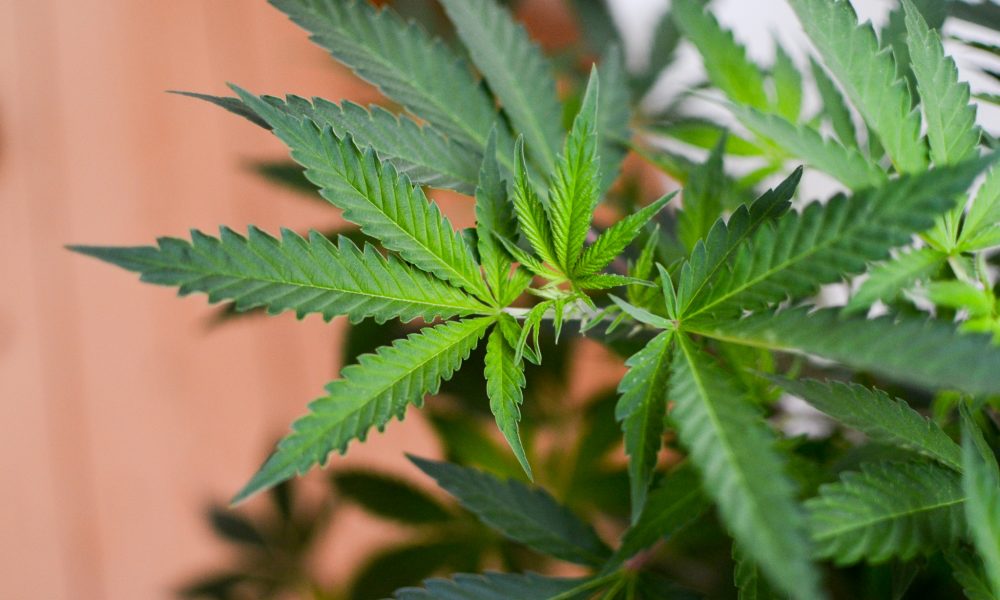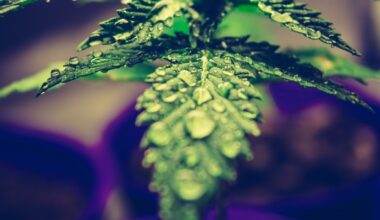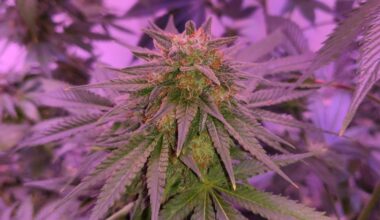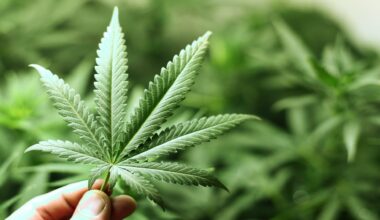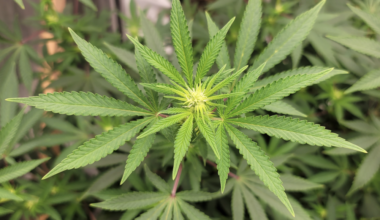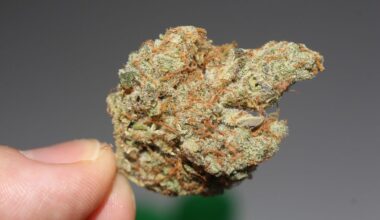The governor of Louisiana has approved a slew of marijuana reform bills, including one key measure that would expand the number of medical dispensaries that can operate in the state and another to prevent police from searching people’s homes over the smell of cannabis.
Gov. John Bel Edwards (D) announced that he signed the cannabis proposals on Tuesday. While advocates are pushing for broader reforms like adult-use legalization, they generally feel that the enactment of these pieces of legislation represent a step in the right direction.
Among the most notable signed bills is one from Rep. Tanner Magee (R) that will shift regulatory responsibility for the state’s medical marijuana program from the Department of Agriculture and Forestry to the Department of Health. HB 697 will also allow existing medical cannabis dispensaries to add new satellite retail locations.
As amended and enacted, it would effectively allow only existing businesses to qualify for additional licensing opportunities, raising concerns about the ability of new start-up entrepreneurs to enter the industry.
Magee also had a separate measure signed by the governor that would impose fees on cannabis testing facilities.
Two other pieces of legislation that Edwards signed deal with out-of-state reciprocity for medical cannabis patients. Both were sponsored by Rep. Joseph Marino (I).
One generally makes it so that people living in other states can be treated as eligible, registered marijuana patients who can purchase and possess cannabis from licensed dispensaries in Louisiana. The other provides specific legal protections against prosecution under the state’s drug laws for those out-of-state patients who participate in Louisiana’s market.
—
Marijuana Moment is already tracking more than 1,000 cannabis, psychedelics and drug policy bills in state legislatures and Congress this year. Patreon supporters pledging at least $25/month get access to our interactive maps, charts and hearing calendar so they don’t miss any developments.![]()
Learn more about our marijuana bill tracker and become a supporter on Patreon to get access.
—
In another expansion of the state’s medical marijuana program, a bill signed by the governor that was sponsored by Rep. C. Travis Johnson (D) will allow nurse practitioners to recommend medical cannabis to patients, instead of just doctors.
HB 629 was also signed into law, and that legislation from Rep. Marcus Bryant (D) establishes that “the odor of marijuana alone shall not provide a law enforcement officer with probable cause to conduct a search of a person’s place of residence,” according to a synopsis.
The governor signed a measure from Rep. Cedric Glover (D) that would revise the state’s drug code definition of paraphernalia to exclude devices “solely used or intended for use for the inhalation of raw or crude marijuana, tetrahydrocannabinols, or a chemical derivative of tetrahydrocannabinols” for registered medical marijuana patients.
The governor also signed two hemp bills. One, from Johnson, would create a Louisiana Industrial Hemp Promotion and Research Program, which would be responsible for supporting “the growth and development of the industrial hemp industry.”
Another hemp measure, from House Speaker Clay Schexnayder (R), lays out specific regulations for Louisiana’s industrial hemp program. It would do that, in part, by creating new licensing standards for hemp companies, require criminal background checks as part of the application process and prohibit the sale of smokeable hemp and hemp-derived cannabinoids in alcoholic beverages.
Rep. Laurie Schlegel’s (R) bill to prohibit people from smoking or vaping cannabis products in a vehicle was also signed by the governor.
Separate legislation on marijuana workplace protections advanced through the House and Senate and still awaits action from the governor. If enacted, it would make it so employees who are subject to drug testing could not be penalized for a positive THC alone if they’re a registered patient, though they could also continue to face punishment if they’re found to be impaired on the job.
“Not long ago, Louisiana had perhaps the harshest cannabis laws in the nation and no medical cannabis program,” Karen O’Keefe, director of state policies at the Marijuana Policy Project (MPP) told Marijuana Moment.
“Louisiana has made steady progress since then, and that trend continued in 2022,” she said. “We applaud the legislature and governor for enacting a half dozen bills to expand the medical cannabis program, including reciprocity and allowing more locations to dispense cannabis, along with its limitation on warrantless searches based on the smell of cannabis.”
Rep. Larry Bagley (R) had a separate bill this session that moved through a key House committee that would have increased the number of cannabis producers that could be authorized in the state, but it did not pass.
While advocates would like to see the momentum over the past few years continue and eventually lead to an adult-use legalization system in the state, that has yet to come to fruition.
Nearly six in ten Louisiana voters support legalizing marijuana, according to a poll from the University of New Orleans that was released in April.
While legalization has yet to be enacted in the Pelican State, Edwards did sign a bill last year to decriminalize possession of up to 14 grams of cannabis by making it punishable by a $100 fine without jail time. That policy went into effect last August.
Bagley also filed a bill this session to revise the state’s cannabis decriminalization law to make it so people under 18 could face incarceration over low-level possession that advanced, but wasn’t enacted.
Edwards also signed a bill last year to allow patients in the state’s medical cannabis program legally to smoke whole-plant marijuana flower.
The governor also previously said that he does think that Louisiana will inevitably legalize cannabis for adult use at some point, but he doesn’t believe it will happen before his term expires in 2024.
An effort in the legislature to pass a bill to legalize recreational cannabis stalled in the House last session after the chamber failed to pass a complementary measure on taxing adult-use marijuana.
Last year, Edwards also said that he had “great interest” in the legalization proposal, and he pledged to take a serious look at its various provisions.
In 2020, the Louisiana legislature significantly expanded the state’s medical marijuana program by passing a bill that allows physicians to recommend cannabis to patients for any debilitating condition that they deem fit instead of from the limited list of maladies that’s used under current law. The governor signed that into law.
A separate poll released last year similarly demonstrated strong voter support for marijuana legalization, even in conservative stronghold districts.
Two other previous polls—including one personally commissioned by a top Republican lawmaker—have found that a majority of voters are in favor of legalizing cannabis for adult use.
Photo courtesy of Philip Steffan.
Medical Disclaimer:
The information provided in these blog posts is intended for general informational and educational purposes only. It is not a substitute for professional medical advice, diagnosis, or treatment. Always seek the advice of your physician or other qualified healthcare provider with any questions you may have regarding a medical condition. The use of any information provided in these blog posts is solely at your own risk. The authors and the website do not recommend or endorse any specific products, treatments, or procedures mentioned. Reliance on any information in these blog posts is solely at your own discretion.
